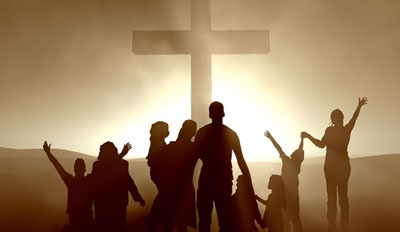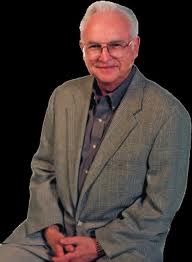April 2011 - Vol. 49
The primary Christian symbol for nearly 2,000 years has been the cross. It has been the central statement of our theology and our faith. But it is more than our symbol; it is our salvation. It is at the cross that religions divide. Some ignore it, others seek to explain that Jesus “didn’t really die” and still others, while acknowledging it, fail to preach its power. Can there be authentic Christianity without the cross? Can there be real salvation apart from it? The answer is no. I grew up singing about the cross. As a Southern Baptist, I learned the great classic hymns: “At the Cross,” “The Old Rugged Cross,” “Jesus Keep Me Near the Cross,” and my favorite, “When I Survey the Wondrous Cross.” It was in the ugliness of that event that the beauty of Christ was revealed. The apostolic Gospel was, and is, cross-centered. Whether Peter was preaching at Pentecost or Paul was writing to Corinth, the cross was central (see Acts 2:2, 1 Corinthians 15). Peter saw and proclaimed the cross as the center of God’s plan. And Paul warned against any human cleverness that might obscure the power of the cross. The fact that millions of lives are still being transformed is a vivid indicator that the cross has lost none of its power. If the cross is central to our salvation, and it is, then it certainly is the primary motive for our worship. It was at the cross that mankind beheld the true nature of God’s goodness and mercy. And though wicked mankind railed at the cross, and arrogant mankind scoffed at the cross as foolish, redeemed mankind worships there. The prophesied
cross
The prayerful
cross
The prayer of Jesus was that he would do not his own will, but the Father’s will. That agonizing prayer continued until he finally prayed, “Into your hands I commend my spirit.” While the cross was for our salvation, he was continually focused on the Father; the cross was a living prayer. He went there and suffered there as unto the Father. His thoughts were vertical, even as he forgave his enemies. He lived and died to please the Father to whom he returned. The private cross
The loneliness of complete obedience, the loneliness of private agonizing prayer, and the loneliness of his mission to die for our sins …these all isolated him from everyone else who ever lived. Pain is best shared with those who have borne similar suffering. But in Jesus’ case – no one – no one ever bore such grief. He could share his suffering with no one. We may, in our mind’s eye, imagine the cross. We may strive to find words to describe what happened, but there is no imagining his complete isolation even from the Father as the sun was hidden at noonday. Jesus stands for us a High Priest. We may all be priests, but Jesus’ unique suffering makes him the unique High Priest. The cruel cross
It was all on public display, and so was man’s depravity. The cross spoke of humanity’s worst motives against heaven’s best representative. So horrible was the cross that even the most hardened people ultimately turned their faces from him. The grace of the
cross
Isaiah 61 says it perfectly. He took the bad news and gave us the Good News. He took our grief and sorrows, and gave us his comfort and joy. He took our affliction and gave us his healing. He took our bondage and gave us his freedom. He took the ashes of our past and gave us his strength and a spirit of praise. He took our humanity and our sinfulness and gave us divine righteousness. It is impossible to measure the magnitude of his grace with the benefits of his blessings. Concerning the very ones who did the awful deed to him,Jesus prayed, “Father forgive them, they know not what they do.” What he received from mankind and what he gave back are infinitely apart. Is it any wonder that we worship at the cross? The believer’s
cross
Growing up, I believed in the cross with all of my Baptist friends, but its shadow over me was not so real until his will crossed mine. I wanted to find a way around his will for my life. I thought about other good things that I might do to serve God. What he wanted was distasteful to me. That is when I finally realized that the cross purchased more than my salvation – it purchased me. The cross is not only where Jesus died. If we receive his marvelous gifts, it is where we die. In a legal sense, we died with him. If we died with him, we arise from the dead with him, we arise from the dead with him to walk in his purpose (see Romans 6:1-11). Our ultimate choice is not just heaven or hell, it is self or Savior. Accepting his cross is accepting ours. Is it too heavy? Is it morbid? No, it is freedom from our worst enemy – self. It is the joy and excitement of resurrection life. It is cause for thanksgiving, praise, worship, and obedience: When I survey the wondrous cross on which the Prince of Glory diedThe Bible tells us that Jesus died for the sins of the world, to redeem the church, and to please the Father. As I weighed my personal sin and looked to the cross, I realized that I was included; he died for me. If he died for me, then I owe my life, hope, peace, and joy to him. It motivates me daily – not just in the worship service, but in the service of worship. That’s the power of the cross. If you have embraced the cross, his and yours (and I hope sincerely that you have), then you know his story. And, you have a personal story to tell. It is the greatest story ever told. It is told through all kinds of media and should be. It is told from a multitude of pulpits around the world. But it is best told when one person tells another – from personal experience, one-to-one. Go and tell! This
article was originally published in One-to-One
Magazine, October 2003. Used with permission.
|
. | |||
|
publishing address: Park Royal Business Centre, 9-17 Park Royal Road, Suite 108, London NW10 7LQ, United Kingdom email: living.bulwark@yahoo.com |
. |

